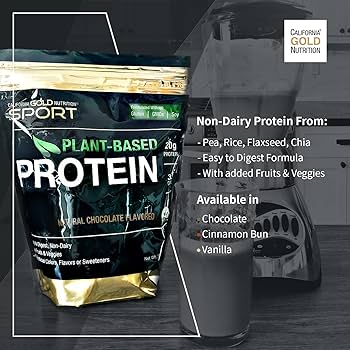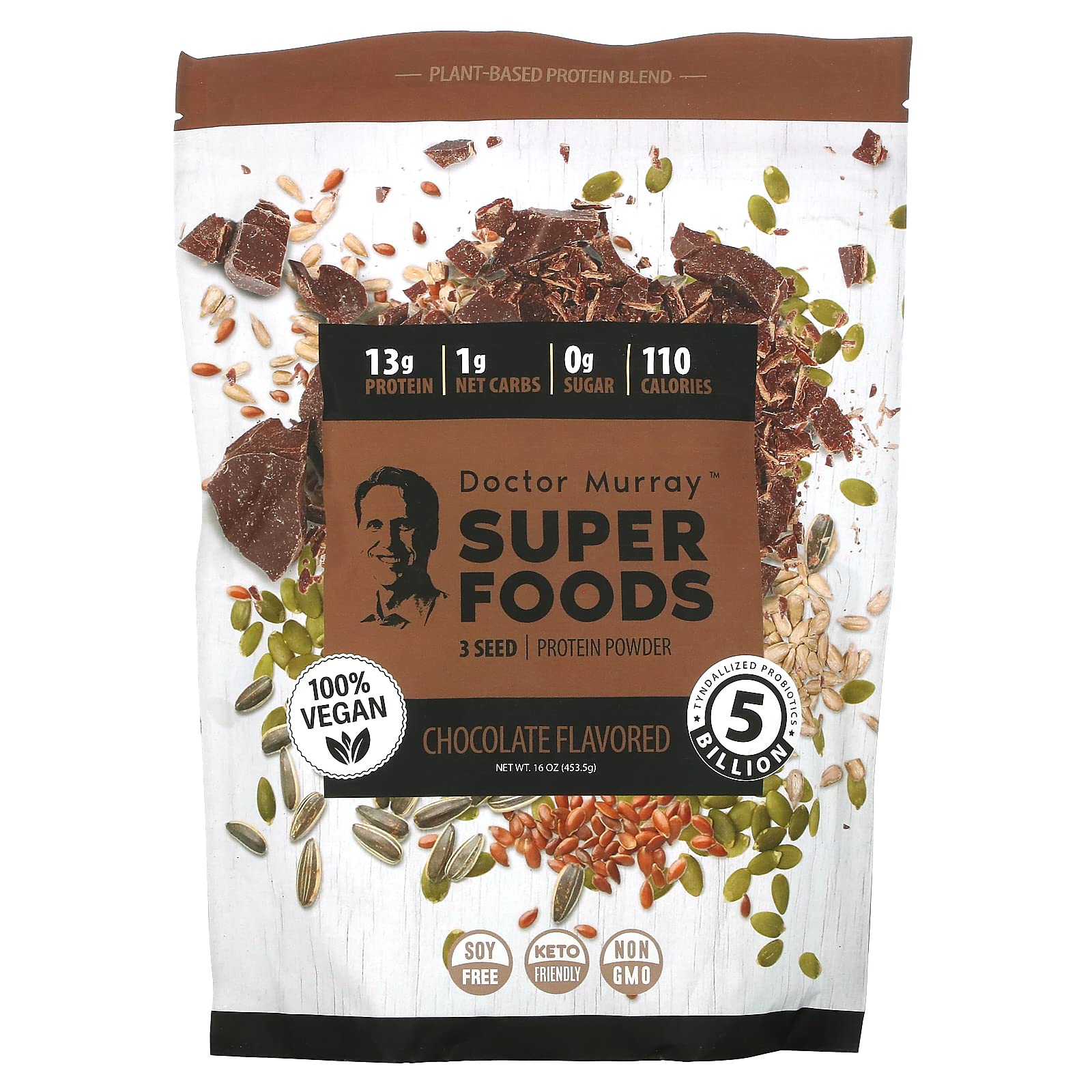Vegan protein powder
Vegan Protein Powder: A Plant-Powered Fitness Boost
Introduction
In a world where health and fitness are becoming increasingly important, the demand for vegan protein powder has surged. This article explores the various aspects of vegan protein powder, from its benefits to the best brands available. We will delve into the essential information you need to make an informed choice about incorporating this plant-powered protein source into your diet.
The Rise of Veganism
With the rise of veganism, more and more people are seeking plant-based protein alternatives to support their active lifestyles. Vegan protein powder offers a convenient and sustainable solution, but what exactly is it, and how can it benefit you?
What is Vegan Protein Powder?
Vegan protein powder is a dietary supplement made from various plant sources, including peas, rice, hemp, and soy. These sources are rich in protein, making them ideal for those looking to boost their protein intake without consuming animal products.
Benefits of Vegan Protein Powder
1. Muscle Recovery and Growth
One of the primary advantages of vegan protein powder is its ability to support muscle recovery and growth. It provides essential amino acids necessary for repairing and building muscle tissue.
2. Weight Management
Vegan protein powder can aid in weight management by promoting feelings of fullness and helping to control appetite. This can be particularly beneficial for those looking to lose weight or maintain a healthy body composition.
3. Digestive Health
Unlike some dairy-based protein supplements, vegan protein powder is gentle on the digestive system. It is often better tolerated by individuals with lactose intolerance or other dairy-related sensitivities.
4. Sustainability
Choosing vegan protein powder aligns with eco-conscious choices as it has a lower environmental impact compared to animal-based proteins.
The Different Types of Vegan Protein Powder
When it comes to vegan protein powder, you have several options to choose from. The following are some of the most popular types:
1. Pea Protein
Pea protein is a highly digestible and easily absorbed plant-based protein. It is an excellent option for those with allergies to soy or gluten.
2. Rice Protein
Rice protein is hypoallergenic and suitable for individuals with dietary restrictions. It is often combined with other plant proteins for a complete amino acid profile.
3. Hemp Protein
Hemp protein is rich in omega-3 fatty acids and provides an array of essential nutrients in addition to protein.
4. Soy Protein
Soy protein is one of the most common vegan protein sources and is considered a complete protein because it contains all the essential amino acids.
How to Choose the Right Vegan Protein Powder
Selecting the right vegan protein powder can be a daunting task, given the numerous options available. Here are some factors to consider:
1. Protein Content
Check the protein content per serving to ensure it meets your dietary needs. Most products provide around 15-20 grams of protein per serving.
2. Flavor and Taste
Taste is a significant factor in your choice. Try various flavors to find one that you enjoy.
3. Additional Ingredients
Examine the ingredient list for additives, sweeteners, and preservatives. Opt for products with minimal additives.
4. Allergen Information
If you have allergies, make sure the product is free from allergens that affect you.
Top Vegan Protein Powder Brands
Now that you understand the benefits and types of vegan protein powder, let's explore some of the leading brands in this market:
1. Vega
Vega offers a wide range of vegan protein powders, known for their great taste and high protein content.
2. Orgain
Orgain focuses on producing organic and high-quality vegan protein powders, catering to health-conscious consumers.
3. Garden of Life
Garden of Life provides a variety of vegan protein options, including raw and organic choices, appealing to different dietary preferences.
Conclusion
Vegan protein powder is a versatile and effective way to meet your protein needs while aligning with a plant-based lifestyle. With a wide range of options available, it's essential to choose a product that suits your dietary requirements and preferences.
Get started on your vegan protein journey, and take a step towards a healthier, more sustainable lifestyle. Vegan protein powder is not only beneficial for your well-being but also contributes to a greener planet.
For more information and recommendations, feel free to explore our website or contact us directly.
FAQs
1. Is vegan protein powder suitable for athletes and bodybuilders?
Absolutely! Vegan protein powder can effectively support muscle growth and recovery, making it an excellent choice for athletes and bodybuilders.
2. Can I use vegan protein powder for weight loss?
Yes, vegan protein powder can aid in weight management by promoting a feeling of fullness and controlling appetite, making it a helpful tool for those looking to shed some pounds.
3. Are there any potential side effects of using vegan protein powder?
In general, vegan protein powder is well-tolerated. However, it's essential to read the ingredient list to ensure it doesn't contain any substances you are allergic to.
4. What is the recommended daily intake of vegan protein powder?
The recommended daily intake varies from person to person, depending on their activity level and dietary needs. It's advisable to consult with a healthcare professional or nutritionist for personalized guidance.
5. Is vegan protein powder environmentally friendly?
Yes, vegan protein powder production has a lower environmental impact compared to animal-based proteins, making it a more sustainable choice for eco-conscious individuals.
Plant-Based Protein: A Healthy and Sustainable Choice
Introduction
In today's health-conscious world, plant-based protein has emerged as a sought-after dietary option. With an increasing number of individuals adopting plant-based diets, the spotlight is on the rich world of plant-derived protein sources. This article delves into the world of plant-based protein, its myriad benefits, and how you can incorporate it into your diet for a healthier and more sustainable lifestyle.
The Plant-Based Revolution
As the world shifts towards more sustainable and ethical dietary choices, plant-based diets have gained immense popularity. Plant-based protein is at the forefront of this movement, offering a wealth of health benefits without the environmental footprint associated with animal products.
Understanding Plant-Based Protein
Plant-based protein refers to protein derived from plant sources such as legumes, grains, nuts, and seeds. It provides an excellent alternative to animal-based protein for individuals seeking to reduce their carbon footprint and embrace a more compassionate way of eating.
Benefits of Plant-Based Protein
1. Heart Health
Plant-based protein sources are typically low in saturated fat, making them heart-healthy options that can help lower cholesterol levels and reduce the risk of heart disease.
2. Weight Management
Incorporating plant-based protein into your diet can aid in weight management as it often contains fewer calories and less unhealthy fats than animal-based protein.
3. Sustainability
Plant-based protein is environmentally friendly, requiring fewer resources and producing fewer greenhouse gas emissions compared to livestock farming.
4. Ethical and Cruelty-Free
Choosing plant-based protein supports ethical and cruelty-free food choices, aligning with values of compassion and respect for all living creatures.
Diverse Sources of Plant-Based Protein
Plant-based protein is incredibly diverse, offering numerous sources to choose from. Here are some of the most popular options:
1. Legumes
Legumes, including lentils, chickpeas, and black beans, are rich sources of plant-based protein. They are versatile and can be used in a variety of dishes.
2. Quinoa
Quinoa is a complete protein source, containing all nine essential amino acids. It's an excellent choice for those looking to increase their protein intake.
3. Nuts and Seeds
Nuts such as almonds and seeds like chia and flaxseeds provide protein and healthy fats. They are perfect for snacking and adding to salads.
4. Tofu and Tempeh
Tofu and tempeh are soy-based protein sources and are versatile ingredients in vegan and vegetarian cooking.
Incorporating Plant-Based Protein
If you're considering adopting a plant-based diet or simply adding more plant-based protein to your meals, here are some tips:
1. Start Slowly: Gradually introduce plant-based protein sources into your diet to allow your palate to adapt to new flavors and textures.
2. Diverse Diet: Explore various plant-based protein sources to ensure you receive a wide range of nutrients and flavors.
3. Recipe Makeover: Modify your favorite recipes to include plant-based protein. For instance, use tofu or legumes in place of meat.
4. Balanced Meals: Aim for balanced meals that include a mix of carbohydrates, protein, and healthy fats to meet your nutritional needs.
Conclusion
Plant-based protein offers a healthy and sustainable alternative to animal-based protein, with a range of benefits for your health and the planet. By incorporating plant-based protein sources into your diet, you can enjoy the nutritional advantages and contribute to a more eco-friendly and compassionate world.
For more information and delicious plant-based recipes, explore our website or get in touch with our team.
FAQs
1. Is plant-based protein suitable for athletes and bodybuilders?
Absolutely! Plant-based protein can effectively support muscle recovery and growth, making it an excellent choice for athletes and bodybuilders.
2. Can I get enough protein from a plant-based diet?
Yes, it is possible to get all the essential nutrients, including protein, from a well-balanced plant-based diet. The key is to include a variety of protein sources.
3. Are plant-based diets suitable for all age groups?
Plant-based diets can be suitable for all age groups, but it's essential to ensure proper nutrition, especially for growing children and older adults. Consult with a healthcare professional for personalized guidance.
4. How can I ensure I'm getting enough essential amino acids on a plant-based diet?
Consuming a variety of plant-based protein sources is the key to obtaining all essential amino acids. Mixing legumes, grains, and nuts/seeds in your diet can provide a well-rounded amino acid profile.
5. Is plant-based protein more expensive than animal-based protein?
The cost of plant-based protein varies depending on the products and brands you choose. While some plant-based protein sources may be pricier, others are quite affordable, making it a versatile and budget-friendly choice.


Comments
Post a Comment